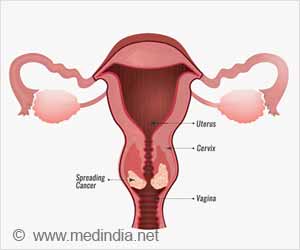Breast cancer patients who exercise more to reach the recommended 150 minutes each week can cut their risk of early death, reports a new study.

‘Physical activity is important in improving survival following breast cancer diagnosis and should be encouraged, particularly in women who are less active before diagnosis.’
Read More..




Although the benefits of pre- and post-diagnosis physical activity have been recognized, few studies have examined whether changing physical activity levels following breast cancer diagnosis may impact mortality. Researchers at the German Cancer Research Centre in Heidelberg investigated associations between pre- to postdiagnosis physical activity and prognosis in postmenopausal women who were diagnosed with a first primary cancer in Germany. Read More..
Audrey Jung, the corresponding author, said: "The results of our study suggest that there are merits to leisure-time physical activity in breast cancer patients and that its associated benefits are not only limited to women who are physically active before and after diagnosis. Instead, the benefits appear to extend to women who did not adhere to the recommended levels of physical activity before diagnosis but who did so after diagnosis."
The researchers found that compared to women who were insufficiently active both before and after diagnosis (less than 150 minutes of moderate-intensity physical activity), women who were insufficiently active before, but sufficiently active after diagnosis were at a lower risk of death from any cause (overall mortality). For women who engaged in 150 minutes or less of moderate-intensity leisure-time physical activity per week before diagnosis, increasing their physical activity to 150 minutes or more of moderate-intensity physical activity per week after diagnosis was associated with a 50% reduced risk of overall mortality.
For women who had more than 150 minutes of physical activity before and after diagnosis, this was associated with a risk reduction of 30%. Compared with women who did not engage in any leisure-time physical activity pre- and postdiagnosis (0 minutes of moderate-intensity leisure-time physical activity), women who were sufficiently active pre- and postdiagnosis were at 36% reduced risk of breast cancer-specific mortality.
The authors analyzed data on 2,042 German breast cancer patients aged 50 to 74 years, who were recruited to the study between 2002 and 2005, followed up once in 2009 and again in June 2015. Out of these 2,042 women, 1,349 (66.1%) participated in at least one physical activity before diagnosis and 1,253 women (61.4%) participated in at least one activity after diagnosis.
Advertisement
The authors caution that patients at the first follow-up point had already survived approximately six years from breast cancer diagnosis, which restricts the results to long-term survivors of breast cancer. To better understand the complex relationships between physical activity before and after diagnosis and increased survival in breast cancer patients, large, randomized controlled trials would be needed.
Advertisement
Source-Eurekalert















